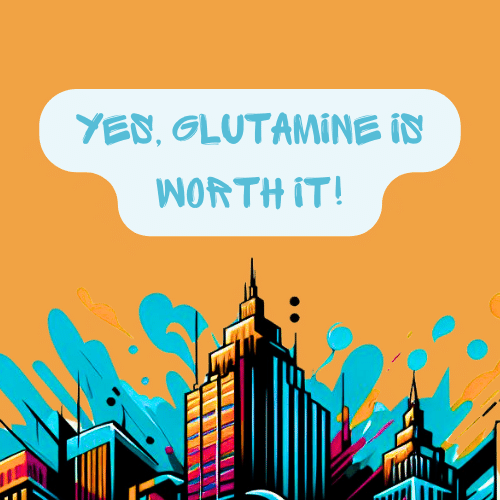In the grand tapestry of fitness supplements, beta-alanine plays a character reminiscent of an underdog sports hero—often underestimated and overlooked, yet harboring a spark that, under the right circumstances, can ignite a firestorm of athletic prowess.
It’s a molecule that has danced through the annals of sports science literature with the grace of a prima ballerina, subtly but surely making its mark. But as with any good narrative, the true worth of beta-alanine supplementation requires a foray into the minutiae, the kind of meticulous exploration that would make even Asrnold nod in approval.
Beta-Alanine, Unveiled
At its core, beta-alanine is a non-essential amino acid. Unlike its essential cousins, the human body can synthesize it internally, which begs the question: why bother supplementing? The intrigue lies in beta-alanine’s role in synthesizing carnosine, a dipeptide stored in muscles and brain tissue, and a critical player in the war against muscle fatigue. Carnosine acts as a buffer, neutralizing the hydrogen ions responsible for the drop in pH (read: the burning sensation) that accompanies high-intensity exercise. In essence, more beta-alanine means more carnosine, which means more endurance, and potentially, an edge over the competition.
Fact List 1: Beta-Alanine Highlights
- Increases muscular levels of carnosine
- Enhances endurance in high-intensity activities
- May improve moderate- to high-intensity cardiovascular exercise performance
- Reduces muscle fatigue
Yet, as with any supplement, the devil—or in this case, the potential champion—is in the details.
A Fine Balance of Flavor and Science
| Attribute | Description |
|---|---|
| Flavor | Slightly bitter to the taste, often masked in flavored powders or mixed into beverages |
| Texture | Available as a fine powder or in capsule form; powder can have a slightly gritty texture if not well-mixed |
| Sensation | Known for causing a unique ‘tingling’ sensation (paresthesia), which varies in intensity among individuals |
The Nutritional Scorecard
| Comparison | Beta-Alanine Supplement | Typical Diet |
|---|---|---|
| Source | Synthetic or extracted form | Naturally occurring in small amounts in poultry, meat, and fish |
| Daily Dosage | 2-5g recommended for athletic enhancement | Dietary sources unlikely to provide more than 1g daily |
| Key Benefit | Targeted increase in muscle carnosine levels | Contributes to overall protein intake |
The Narrative Arc of Supplementation
In the world of sports and fitness, where milliseconds matter and every breath counts, beta-alanine promises a tale of improved performance and delayed fatigue. However, like any story worth telling, this one comes with twists, turns, and a fair share of nuance.
Subheadings for Deeper Understanding
- Beta-Alanine: A Hero’s Journey
- The Physiology of Performance
- Navigating the Seas of Supplementation
Actionable Insights
- Start with a lower dose to assess your tolerance to the tingling sensation.
- Combine beta-alanine with sodium bicarbonate for a synergistic effect on endurance.
- Be patient; the benefits of beta-alanine build up over time, typically noticeable after 2-4 weeks.
From the Chronicles of Personal Experience
Once upon a recent training cycle, I embarked on my own beta-alanine odyssey. The initial tingles were akin to hosting a colony of benign fire ants beneath my skin—a sensation both unnerving and oddly exhilarating. Over weeks, as the script of my training unfolded, the chapters revealed a subtle but discernible shift. The burn of lactic acid became a less fearsome adversary, allowing me to push just a bit harder, a tad longer. Was it the placebo effect, or had beta-alanine etched its name into the ledger of my athletic improvements? The answer remains a narrative in progress.
Helpful Q&A
- Will beta-alanine turn me into an Olympic athlete overnight?
- Alas, no. Like crafting a McPhee masterpiece, it takes time, consistency, and a touch of innate talent to see significant results.
- Can I skip the tingles but keep the gains?
- Splitting your dosage into smaller servings throughout the day can minimize the paresthesia without diminishing the benefits.
- Is beta-alanine compatible with my vegan diet?
- Absolutely. Synthetic beta-alanine offers a plant-friendly pathway to enhanced endurance.
- How do I know if beta-alanine is working?
- Monitor your performance metrics. Look for improvements in time to exhaustion, total work done, or subjective feelings of reduced fatigue during high-intensity intervals.
- Can anyone take beta-alanine?
- While generally safe, individuals with certain health conditions or those pregnant or nursing should consult a healthcare professional before beginning any supplementation regimen.
In the final analysis, beta-alanine’s worth in your supplement stack is not a question with a universal answer but rather a personal equation involving your training goals, dietary patterns, and willingness to feel a bit tingly now and then. It’s a subplot in the larger narrative of your fitness journey, potentially memorable but requiring careful integration into the main storyline. Whether beta-alanine deserves a starring role or a cameo in your regimen is a narrative choice that only you, dear reader, can make.




